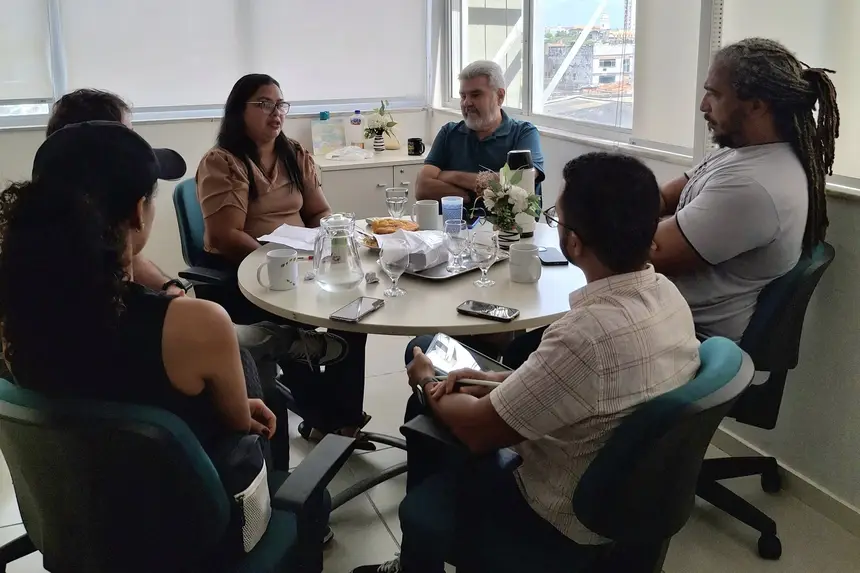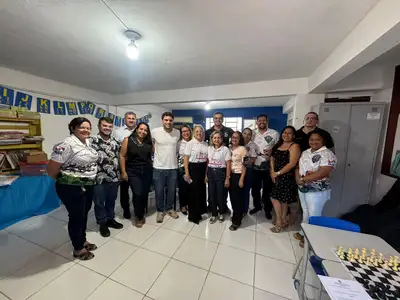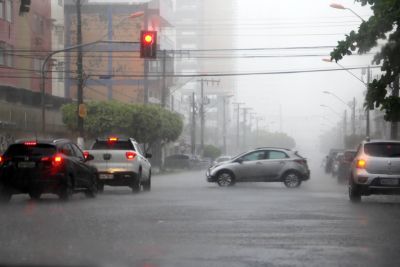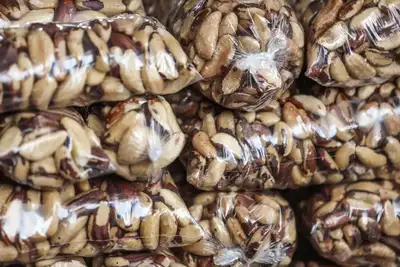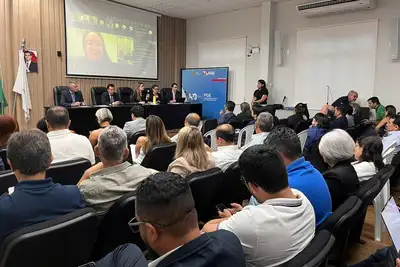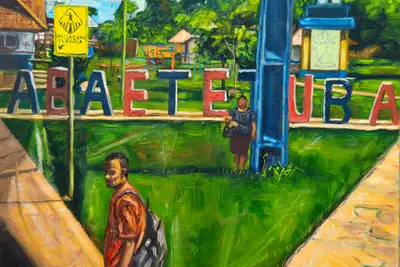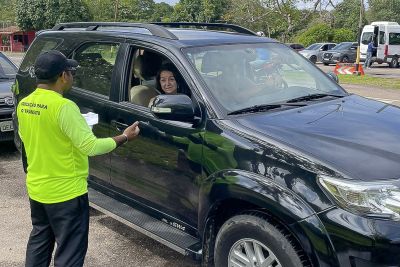Fapespa and Unifesspa discuss Bioeconomy Network in the context of COP 30
Through this partnership, the two institutions aim to contribute to the discussions of the world climate conference, which will take place in Belém
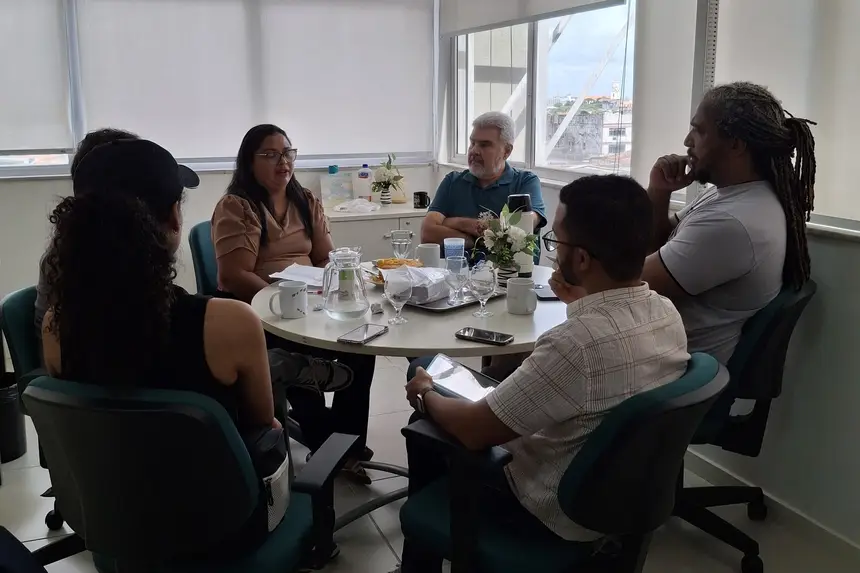
Representatives from the Amazon Foundation for Support of Studies and Research (Fapespa) and the Federal University of Southern and Southeastern Pará (Unifesspa) met to discuss the progress and next steps of the Pará Regional Accounts and Bioeconomy Network Project. The initiative, developed through a partnership between Fapespa and Unifesspa, aims to strategically contribute to Pará's role at COP 30 (the world climate change conference) by valuing the Amazonian bioeconomy.
The managers sought to align data collected by the Pará Network on regional production chains, with a focus on those linked to bioeconomy, as well as to define selection criteria for the production chains that will be prioritized in the upcoming executive reports. The representatives also evaluated socioeconomic and environmental perspectives to support public and private decision-making.
The director of Statistics, Technology, and Information Management at Fapespa, Atyliana Dias, emphasizes that "the main objective of the meeting is to align the data already collected with the strategic demands of COP 30, in which Pará will play a prominent role as host of the global climate agenda. Fapespa is not just a research funder. It acts as the technical arm of the State in producing information that supports public policies and strategic decisions, as in the case of COP 30, seeking to highlight Pará's role in the bioeconomy, sustainable development, and climate change agenda. This meeting with Unifesspa was essential to ensure the technical quality, analytical coherence, and political relevance of the data produced by the Pará Regional Accounts Network."
Priorities - The partnership aims to consolidate data that support informed choices about which production chains should be prioritized in the executive reports of the Pará Network and, consequently, presented at COP 30. The alignment between Fapespa and Unifesspa should indicate which chains have the greatest socioeconomic impact, viability for sustainable expansion, and environmental relevance, such as açaí, Brazil nuts, native cocoa, and vegetable oils.
Bioeconomy, as a viable development alternative, should be a central axis. The partnership also aims to ensure that the reports arising from the Pará Network Project are aligned with this guideline and provide technical support and strategic narratives to highlight the potential of the Amazon region.
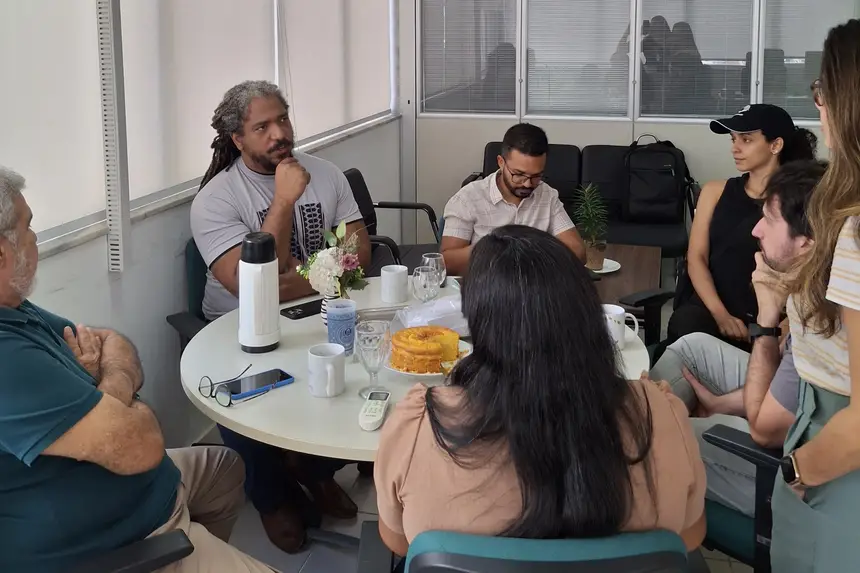
Among the expected actions from the Foundation to the University are the selection of priority production chains for presentation at COP 30; definition of the schedule for delivering the executive report; planning of communication strategies and dissemination of data and proposals for public policies based on regional evidence.
“COP 30 is a global showcase. Fapespa intends to ensure that what is presented represents the real and sustainable potential of the State, especially focusing on the Amazonian bioeconomy. Therefore, it is essential that the data collected and systematized are in line with the political and environmental objectives of Pará, and with international guidelines on climate change and bioeconomy,” emphasizes director Atyliana Dias.
Objectives - The Pará Regional Accounts and Bioeconomy Network aims to estimate the size of the bioeconomy in Pará. Unifesspa is one of the partner institutions in this initiative, along with the Federal University of Western Pará (Ufopa) and the Federal University of Pará (UFPA).
The project seeks to promote sustainable development in the Amazon, involving researchers from the institutions in the process of measuring the bioeconomy in the State, identifying its functioning as both a producer and demander of inputs. The study also includes the evaluation of the income generated by the bioeconomy and its impact on the economic and social development of the region.
Text: Alice Mendonça, intern, supervised by Manuela Oliveira - Ascom/Fapespa


